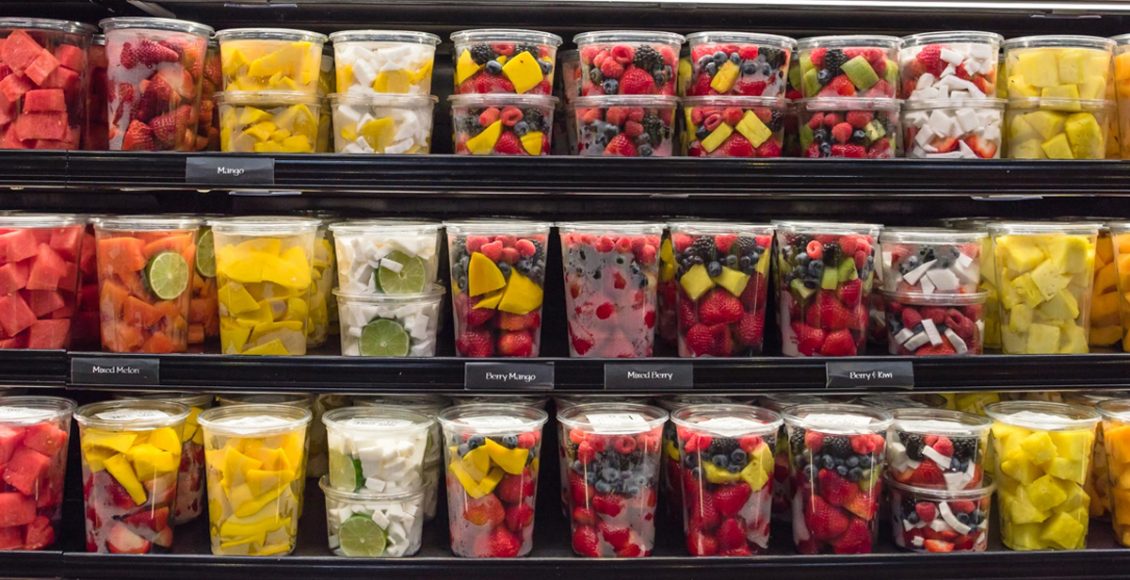
Sustainable Packaging – The Future of Food Packaging in India
Plastic has been an integral part of the packaging industry and forms the foundation of our “convenience consumer culture.” Due to their cost to performance ratio, traditional packaging materials like metals, corrugated paper boards, glass, etc., have been substituted by plastics in many applications in the food industry. However, the same qualities of durability that make the plastic convenient to use, make it a non-degradable and everlasting presence in the environment, contributing to 43% of pollution in the country. Plastic packaging materials are synthetically derived from petroleum and are not readily biodegradable, highly durable, and persist in the environment, creating a severe waste handling and landfills problem, especially in urban centres. When discarded in the environment, plastic debris harmfully affects living beings. Out of 9.46 million tons of plastic waste India produces, 40% remains uncollected, and only a part goes for recycling, while the rest gets dumped in landfills.
Once in the ground and waterways, degrading plastics absorb toxic chemicals like Polychlorinated Biphenyl (PCBs) and pesticides like DDT which can make their way through the food chain and into humans through the ingestion of seafood. Plastic packaging has also been responsible for a significant amount of greenhouse gas emissions in the country. Seven types of plastic polymers which are derived from fossil fuels and are used in food packaging- polypropylene, polystyrene, polyvinyl chloride, polyethylene terephthalate, and polyethylene, account for up to 70% of all plastic production.[1]
Governments across the world have responded to public concerns, especially single-use packaging waste. They are implementing regulations to both minimize waste generation and improve waste management processes. In India, producers, importers, and brand owners of plastic packaging materials will be required to recycle a minimum of 35% of their plastic waste as per the draft notification of the Extended Producer Responsibility (EPR) Regulation. The proposed regulation will allow stakeholders to trade in EPR certificates, offsetting their previous year shortfall. Additionally, single-use plastic items with low utility and high littering potential are proposed to be slowly phased out by 2022 by the Government of India as a step towards sustainability.
Sustainability is fast gaining importance among companies, as consumers increasingly look for ‘green’ products. Air India and the Indian Railways announced replacing plastic packaging with eco-friendly paper and are now planning to use wooden cutlery to take a step towards sustainability. Many brands are basing their packaging choices on the environmental implications that accompany those choices by shifting away from single-use packaging and towards using compostable, recyclable, and reusable materials. For instance, Godrej Consumer Product Ltd has committed a sustainability target until 2025 to adopt a circular economy and ensure efficient use of resources. This initiative includes 100% use of recyclable, reusable, or compostable packaging; 10% use of post-consumer recycled content in plastic packaging. Also, adopting an optimized packaging infrastructure can enhance the brand appeal, and in the food industry, it can increase shelf life. QSR majors like KFC and McDonald’s have already taken a step closer to building the environment plastic-free by committing to make all consumer packaging recoverable or reusable by 2025. Among food companies, Kelloggs has one of the smallest plastic footprints globally. The company uses recycled cardboard for its products, and about 76% of the packaging is recyclable.
In addition to new ventures, packaging manufacturers are looking towards developing biodegradable plastics with less carbon footprint. For instance, a Canada-based coffee company called Level Ground coffee creates compostable bags to pack coffee products. Likewise, another Indian startup, Pepaa, makes sustainable products from post-consumer waste, from recycled paper seed pencils and pens to plant-able seed paper-based products.
The innovations in this industry are required to make it a more sustainable and greener sector. To summarise, in food packaging, India can hope to achieve sustainability typically in four ways:
- 100 % recyclable or eco-friendly packaging raw materials
- Redesigning the existing packaging structures while maintaining functionality
- Production processes and supply chains with a smaller carbon footprint
- A circular economy, wherein the lifecycle and usefulness of the package is extended
A globally accepted system of standards for sustainable packaging could help manufacturers and brands focus their efforts on attaining the common target of reducing plastic waste. With all these trends shaping up, the current growth in demand for sustainable packaging solutions, and the drive to fight climate change and move towards a greener future of packaging, India can hope to decrease its plastic packaging waste and carbon footprint in the world.
[1] Current Technologies in Depolymerisation Process and the Road Ahead. Polymers – Miao, Y., von Jouanne, A., & Yokochi, A. (2021)
Author:

Associate Consultant – Food Processing and Retail practice
Connect with Author at: E-mail foodbiz@sathguru.com
 Grow Beyond
Grow Beyond 

